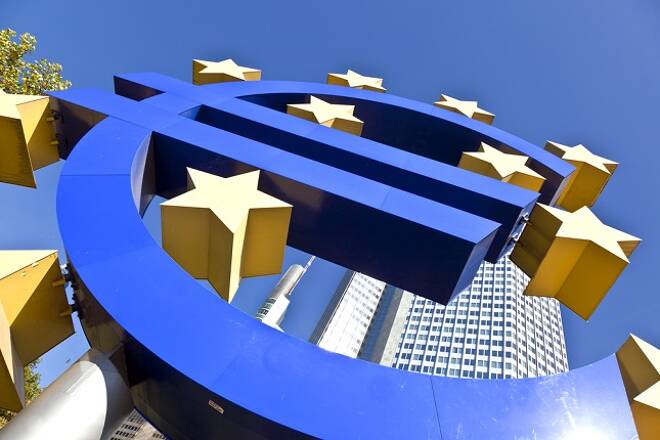Advertisement
Advertisement
Mario Draghi’s Legacy and the Challenges Awaiting Christine Lagarde
Published: Jul 11, 2019, 08:13 GMT+00:00
The eight years of Mario Draghi’s presidency of the European Central Bank were marked mainly by the sovereign debt crisis and subsequent recovery. It is also remarkable that during Draghi’s tenure the ECB didn’t raise interest rates a single time, which is extraordinary, and a clear sign of the complex times lived in Europe over the last decade.
The decisiveness of Mr. Draghi, when he stated, in 2012, that the ECB would do whatever it took to save the single currency, prevented the worsening of a situation that could have had even more serious consequences, perhaps threatening the survival of the Euro.
We can, therefore, to some extent, credit the outgoing ECB chief as responsible for the salvation of the single European currency and the subsequent economic recovery. This is what he will be remembered for. However, there was a cost, which required the extensive use of all available tools; historically low-interest rates and a quantitative easing programme based on epic asset purchases.
Currently, the average growth of the Eurozone economies is at anaemic levels, just above 1%, while inflation remains below the 2% target; the trade dispute between the US and China threatens to escalate, in what would be a serious threat to the growth of the global economy, potentially triggering a new recession.
Another challenge comes from the growth of populist movements in several countries of the union. This movement is fuelled in large part by the disillusionment felt by many towards the elites, especially politicians, because of the growing inequality in the distribution of wealth and the loss of social benefits, driven by austerity, that followed the great recession of 08/09.
Next ECB President Challenges
This is the challenging scenario that Christine Lagarde, the next ECB President, will find. The current managing director of the International Monetary Fund will leave a legacy of innovation when she departs Washington. Today’s IMF has an aura that distinguishes itself from the previous trademark image, of harsh austerity plans and strict fiscal discipline, which had painful social costs in several countries.
Mrs. Lagarde contributed to the change of image; remarking that austerity and fiscal discipline may not always make sense, especially when interest rates and inflation remain at lower than ideal levels. Mrs. Lagarde also suggested that, in special circumstances, higher deficits and measures to reduce inequality may have a positive impact.
Christine Lagarde is not an economist, she is primarily a politician; finance minister under Nicholas Sarkozy’s government, in France; known for her ability to communicate, influence and think outside the box. These attributes will be precious to manage the complexity of the situation awaiting her; European interest rates are in negative territory and the bank’s balance sheet holds 4.7 trillion worth of assets, meaning the conventional array of monetary policy tools is exhausted.
In the face of rising populism, an ending expansion cycle and the impact of very low-interest rates in the credit market, it is imperative for the new leadership of the European Central Bank to be strong. Most observers expect, in terms of monetary policy, that Lagarde will maintain the dovish stance of her predecessor. But, above all, there is hope that the nominee for ECB leadership will be able to extend the central bank’s field of intervention, through her political prowess and capacity for dialogue.
Policies to stimulate consumption and greater fiscal harmonisation and solidarity, between the member states, will be fundamental to the survival of the euro and perhaps the European project itself.
Written by Ricardo Evangelista, Senior Analyst, ActivTrades
* CFDs are complex instruments and come with a high risk of losing money rapidly due to leverage. 74% of retail investor accounts lose money when trading CFDs with this provider. You should consider whether you understand how CFDs work and whether you can afford to take the high risk of losing your money.
About the Author
Ricardo Evangelistacontributor
Ricardo has a Degree in Business Management, Universidade Internacional, Lisbon, Portugal. He published on The Daily Telegraph, The Guardian and Reuters
Advertisement
